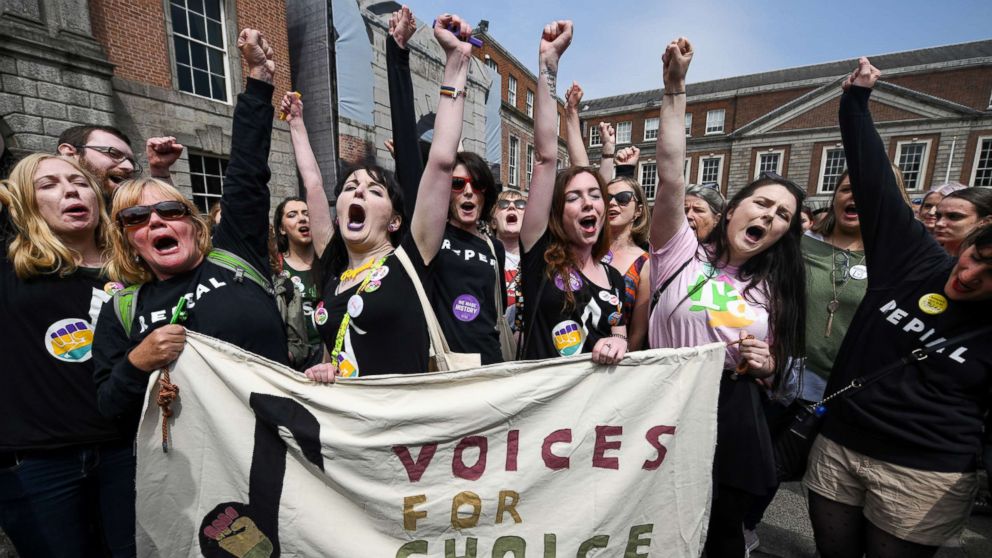Largely Roman Catholic Ireland votes 2-to-1 to repeal abortion ban
Voters in deeply Roman Catholic Ireland by a 2-to-1 margin support to repeal a 1983 constitutional ban on abortions, the official vote tally shows.
Official results of Friday's referendum showed that among 2.1 million votes cast, 1.4 million were in favor of repealing the Eighth Amendment to Ireland’s Constitution that says a mother and unborn child have an “equal right to life.” About 723,000 voters wanted to retain the ban.
Irish Prime Minister Leo Varadkar, a medical doctor who campaigned for ending the decades-old ban, hailed the result as a "quiet revolution."
"The people have spoken," Varadkar said. "The people have said that we want a modern Constitution for a modern country, that we trust women and we respect them to make the right decision and the right choices about their health care."
"A quiet revolution has taken place," he tweeted, "A great act of democracy."
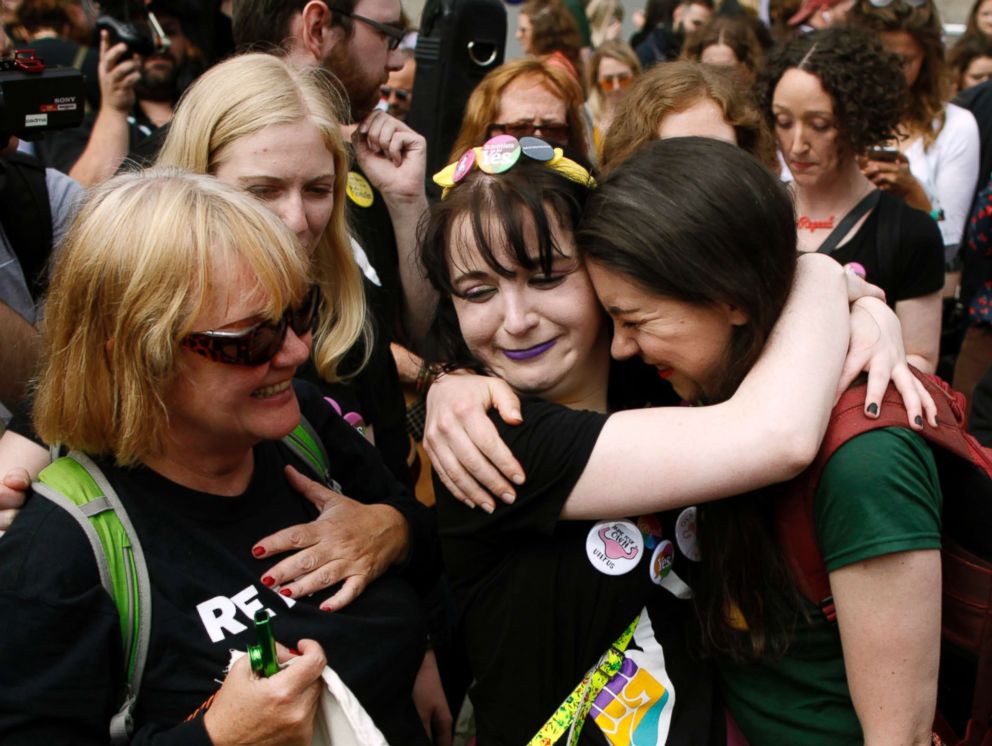
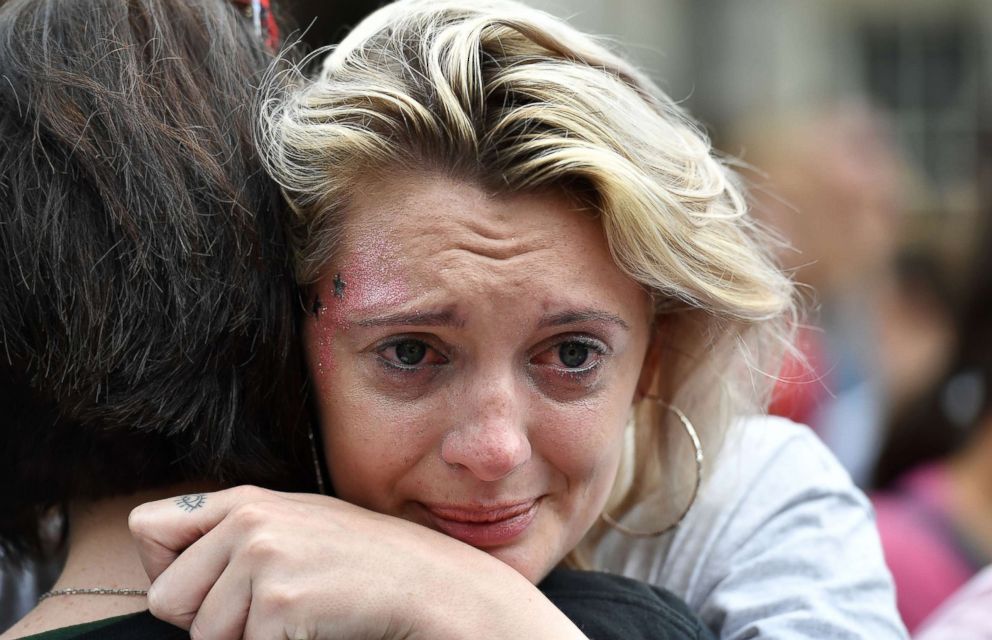
One person involved in the campaign to overturn the ban called the results "momentous."
"The polls suggest all generations voted with us," Catherine Conlon, a social policy professor at Trinity College in Dublin, told ABC News on Saturday, after exit polls showed overwhelming support for repeal.
"I'm so heartened to know so many of my fellow citizens reflected on this debate and came to trust women," Conlon added. "Thank you to every single 'yes' voter that walked into a polling station yesterday. You have changed Ireland for my daughters and son."
Seeking or providing an abortion in Ireland is currently a criminal offense that carries up to 14 years behind bars. As a result, thousands of Irish women make the trip abroad, often to England, to have an abortion.
More than 170,000 women traveled from Ireland to access abortion services another country between 1980 and 2016, according to the Irish Family Planning Association.
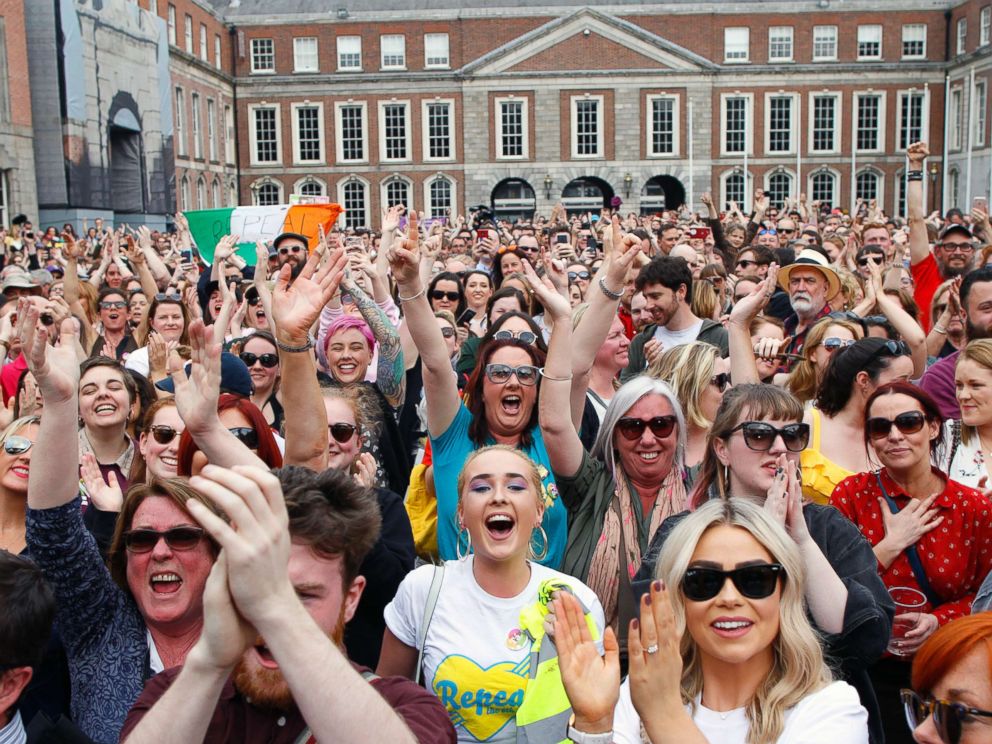
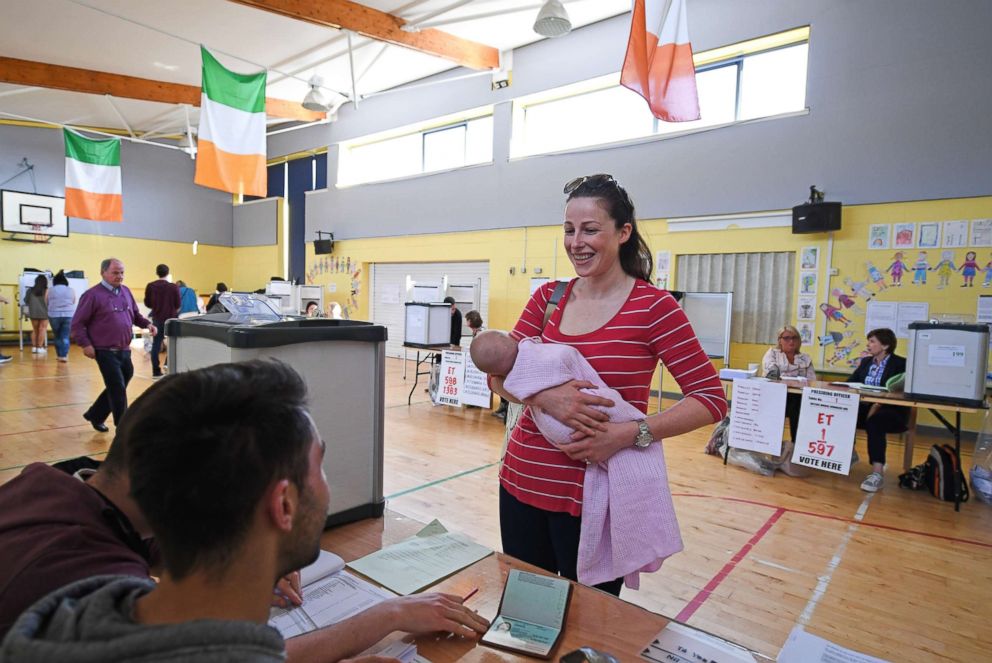
Repealing the amendment means that abortion could be regulated as it is in both the United States and the United Kingdom, clearing the way for Ireland's government to implement more liberal abortion laws. Lawmakers are now expected to debate proposed legislation allowing abortions within the first 12 weeks of pregnancy, and after that in cases of fetal abnormalities or serious risks to the mother’s health.
The vote pitted conservative backers of strict abortion laws against those supporting a woman's right to choose. After the vote Friday and exit polls showing overwhelming support for overturning the abortion ban, anti-abortion advocates showed their concern on social media.
Although the Yes campaign was supported by the country's prime minister, neither of the major political parties took a side in the debate, allowing individual politicians to make up their own minds. The No campaign was largely backed by so-called pro-life groups -- the most prominent being The Iona Institute, a socially conservative Roman Catholic advocacy group.
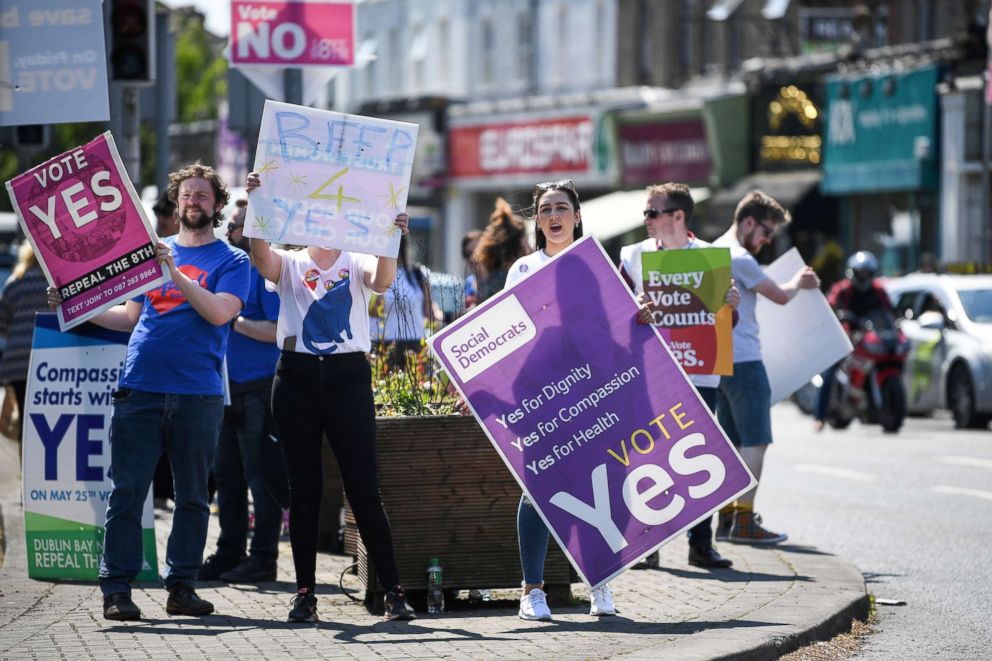
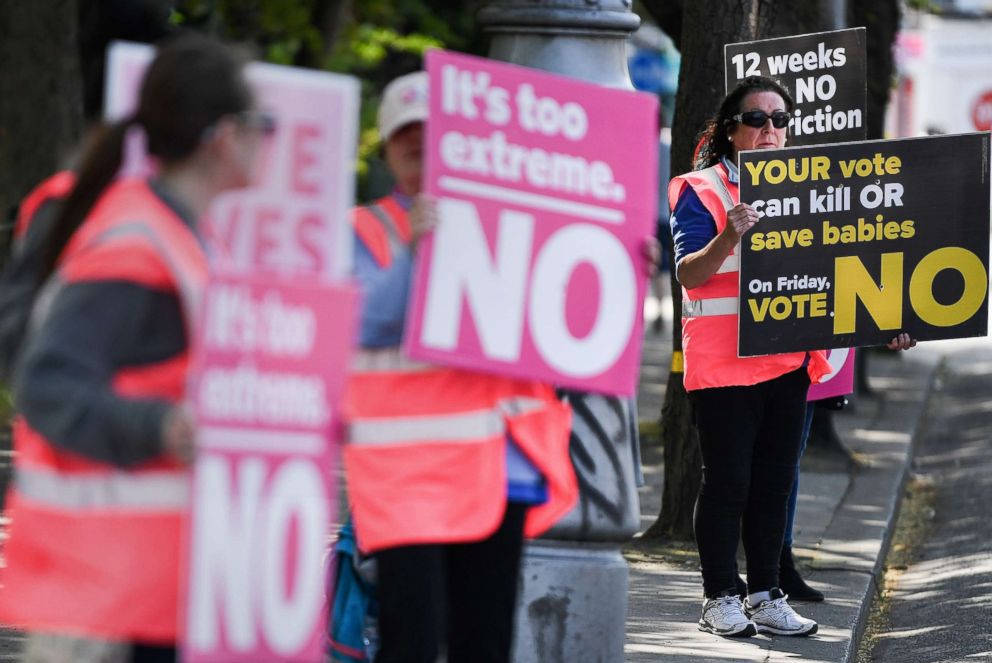
As the date of Friday's referendum approached, the debate between the two sides had grown deeply contentious, with both being accused of illegally removing each other's street posters. The hot-button issue also motivated a number of Irish ex-patriots to fly home from around the globe to cast their ballots, with many posting their positions on social media beside the hashtag #HomeToVote.
The heated, emotional campaign saw limits placed on social media advertisements nationwide, with Facebook and Google banning campaign ads after concerns from experts that some campaign ads were funded by U.S. based anti-abortion groups.
ABC News' Molly Hunter and Morgan Winsor contributed to this report.
